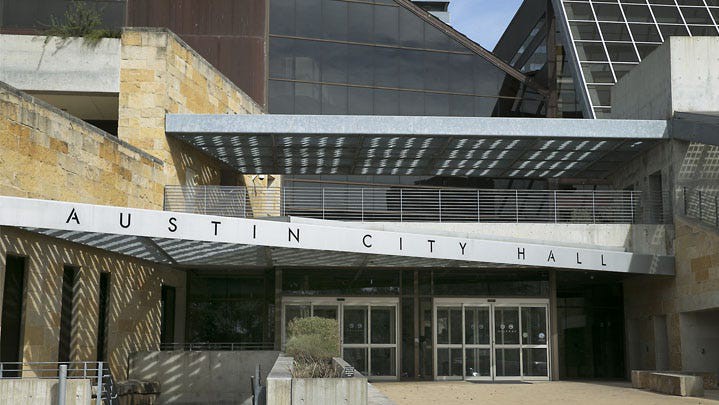politics
Austin eyes major property tax increase to close growing budget gap
Austin City Council unanimously OK'd a maximum property tax rate that would increase the average tax bill by 21% though the adopted rate may be lower.
Published July 31, 2025 at 8:29pm

Facing a multipronged financial crisis, the Austin City Council on Thursday took a major step toward approving what could be the biggest property tax hike in at least 20 years.
In a unanimous vote, the 11-member body set the maximum property tax rate for the upcoming fiscal year at 60 cents per $100 of property valuation. That’s 25% higher than the current rate.
But whether that will be the final tax rate remains to be seen. For one, the rate approved Thursday is not set in stone – it is a ceiling and council members may adopt a lower rate later this month after budget discussions.
Even if they stick with it, they would have to ask voters for permission this fall.
That’s because the maximum rate council approved Thursday is 8 cents higher than allowed under a 2019 state law that bars local governments from increasing the tax rate by more than 3.5% year-over-year without voter approval. For the city of Austin, that limit is 52 cents per $100 of property valuation.
Mayor Kirk Watson emphasized that Thursday’s vote provided the council with “flexibility” as budget negotiations continue. “We want to avoid being in a situation where we're precluding consideration of where [Council] might want to end up,” Watson said from the dais.
A tax rate election appears to be a near certainty with six council members having already expressed support for a tax rate of at least 57 cents per $100 valuation, which is 5 cents over the state-imposed limit.
Assuming a median home value of about $500,000, the annual property tax bill for the typical Austin homeowner would grow by 21% to $421 if the 60-cent rate is approved. The current city property tax rate is 47.76 cents per $100 valuation.
The hike would raise an additional $175 million, according to the city budget office, a handsome sum that the City Council could use to fully fund a wide range of public services over the next four years and help cushion the blow from the expiration of federal stimulus dollars and deep federal funding cuts under the Trump Administration that reduced support to local government.
Council Members Mike Siegel and Zohaib “Zo” Qadri—two of the body’s most progressive members—cited these factors in announcing their support for a tax rate that is 7 cents above the state-imposed limit.
“We knew this time would come,” Siegel and Qadri wrote in a jointly signed post on the council message board. “We can no longer rely on an unstable framework of one-time funding and unpredictable revenue streams to fix and sustain core services.”
In addition to external financial headwinds, the city also faces major constraints as it looks to honor the terms of a new police union contract that will raise police pay by 28% over the life of the five-year agreement.
The Austin Police Department’s budget is projected to increase by about $92 million from 2024 to 2027, according to supplementary figures included in a $6.3 draft budget from City Manager T.C. Broadnax. As required by the labor contract, Broadnax’s draft spending plan includes 6% raises for officers.
The city also faces rising costs with other public safety agencies, including the Austin Fire Department, whose budget is projected to increase by $25 million by 2027 due, in part, to rising labor costs.
Last year, an arbiter awarded the Austin Firefighters Association an 8% raise. And on Wednesday, the union began negotiations with the city over a new four-year contract with Association President Bob Nicks planning to bargain for a pay increase on par with the police union contract.
With the maximum tax rate set, Mayor Watson said council would begin deliberating next week over amendments to Broadnax’s draft budget. The body is set to adopt a tax rate and vote on a final budget between Aug. 13 and 15.

